China earthquake ‘like being tossed by waves’ as at least 127 dead and 155,000 homes damaged
Thousands of homes damaged and power supply cut as earthquakes hit Gansu, Qinghai, and Xinjiang provinces
Your support helps us to tell the story
From reproductive rights to climate change to Big Tech, The Independent is on the ground when the story is developing. Whether it's investigating the financials of Elon Musk's pro-Trump PAC or producing our latest documentary, 'The A Word', which shines a light on the American women fighting for reproductive rights, we know how important it is to parse out the facts from the messaging.
At such a critical moment in US history, we need reporters on the ground. Your donation allows us to keep sending journalists to speak to both sides of the story.
The Independent is trusted by Americans across the entire political spectrum. And unlike many other quality news outlets, we choose not to lock Americans out of our reporting and analysis with paywalls. We believe quality journalism should be available to everyone, paid for by those who can afford it.
Your support makes all the difference.China’s deadliest earthquake in more than a decade has killed at least 127 people and injured around 700, leaving rescue teams scrambling to reach survivors in freezing weather conditions.
The 6.2-magnitude earthquake struck at 11.59pm local time on Monday, the China Earthquake Networks Centre said, as residents in northwestern Gansu and neighbouring Qinghai provinces were sleeping or preparing to sleep.
It was followed by a second 5.5 magnitude earthquake hours later in neighbouring Xinjiang.
The earthquake triggered landslides and wrecked roads and infrastructure, snapping away communication, electricity and water lines in the region.
Thousands of survivors and rescue workers are bracing for a second night of sub-zero temperature as efforts to find missing people and survivors from the rubble ran into the evening.
The Chinese government has dispatched military aircraft to expedite the deployment of hundreds of soldiers, rescue and relief workers, as well as relief materials to one of the country’s poorest provinces.
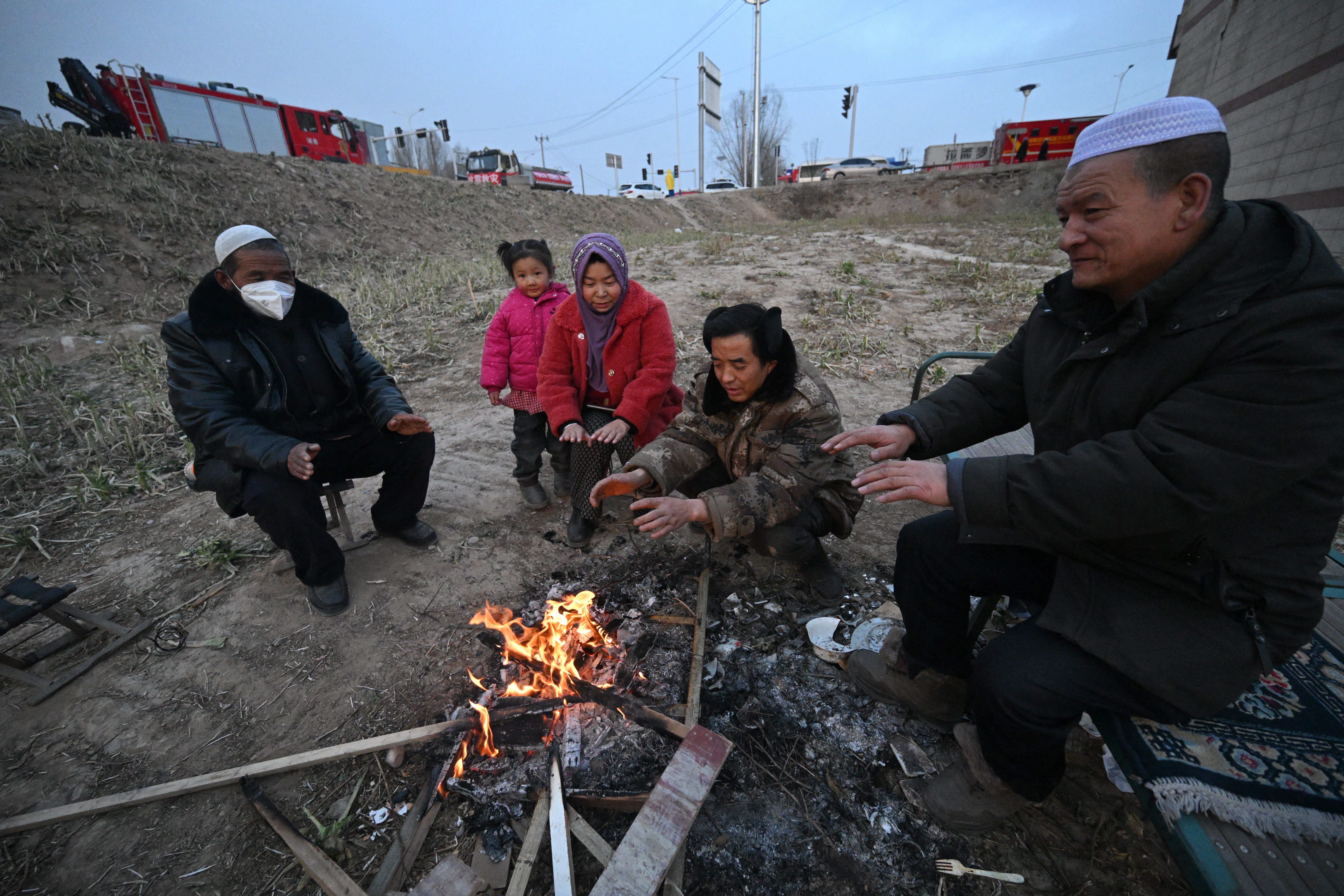
Around 2,200 people from the Gansu provincial fire department, along with 900 from the forest brigade and 260 professional emergency rescue workers, were sent to the disaster frontlines, according to the Xinhua news agency. Additionally, hundreds from the military and police were mobilized for deployment.
President Xi Jinping said “all efforts should be made to carry out search and rescue, treat the injured in a timely manner, and minimise casualties”.
Images and videos shared by state media showed collapsed brick houses and bedrooms buried in rubble as rescue workers dug through rubble.
Around 113 were killed as of 1pm on Tuesday (0500 GMT), and 536 were injured, in rural Jishishan County in Gansu Province, the epicenter of the quake, authorities said.
The death toll in the city of Haidong in neighbouring Qinghai climbed to 14 later in the day, with 198 people injured.
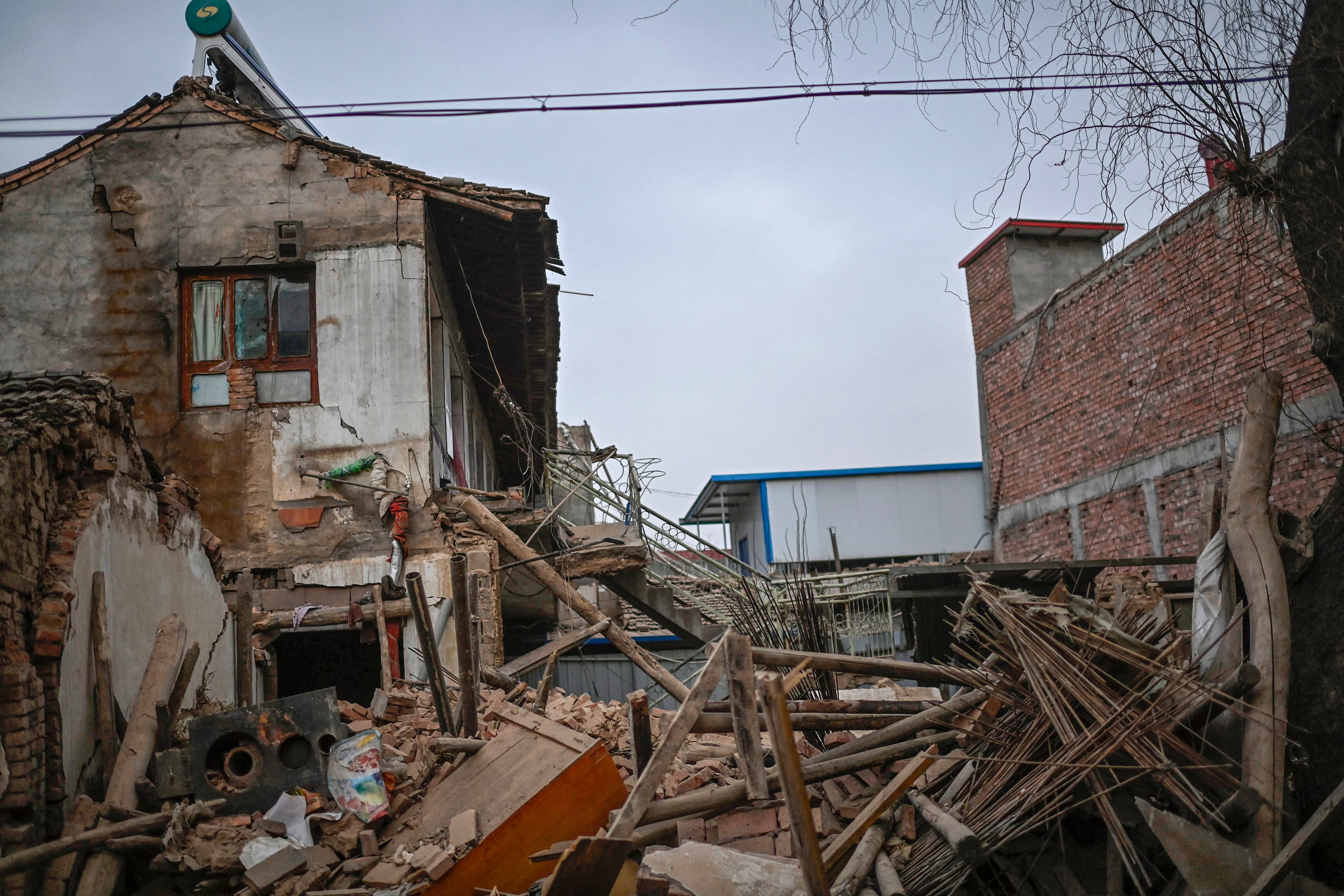
Families in the earthquake-hit region were forced to huddle in the open or in makeshift tents in sub-zero weather conditions as several houses were damaged and a threat remained from aftershocks.
Several reported taking respite around bonfires in their yards or burning cardboard boxes to stay warm while describing the shock of discovering the deaths of their neighbours and relatives as they tried to assess the damage to their homes.
The temperature in Linxia, Gansu, near where the quake occurred, was about -14C on Tuesday morning hours after the disaster.
Recounting the moments when the quake hit, a resident said the shaking was so violent that they were unable to stand up and another said it “felt like being tossed up after surging waves”.
A man named Qin said his family rushed down to 16 floors after they felt strong tremors.
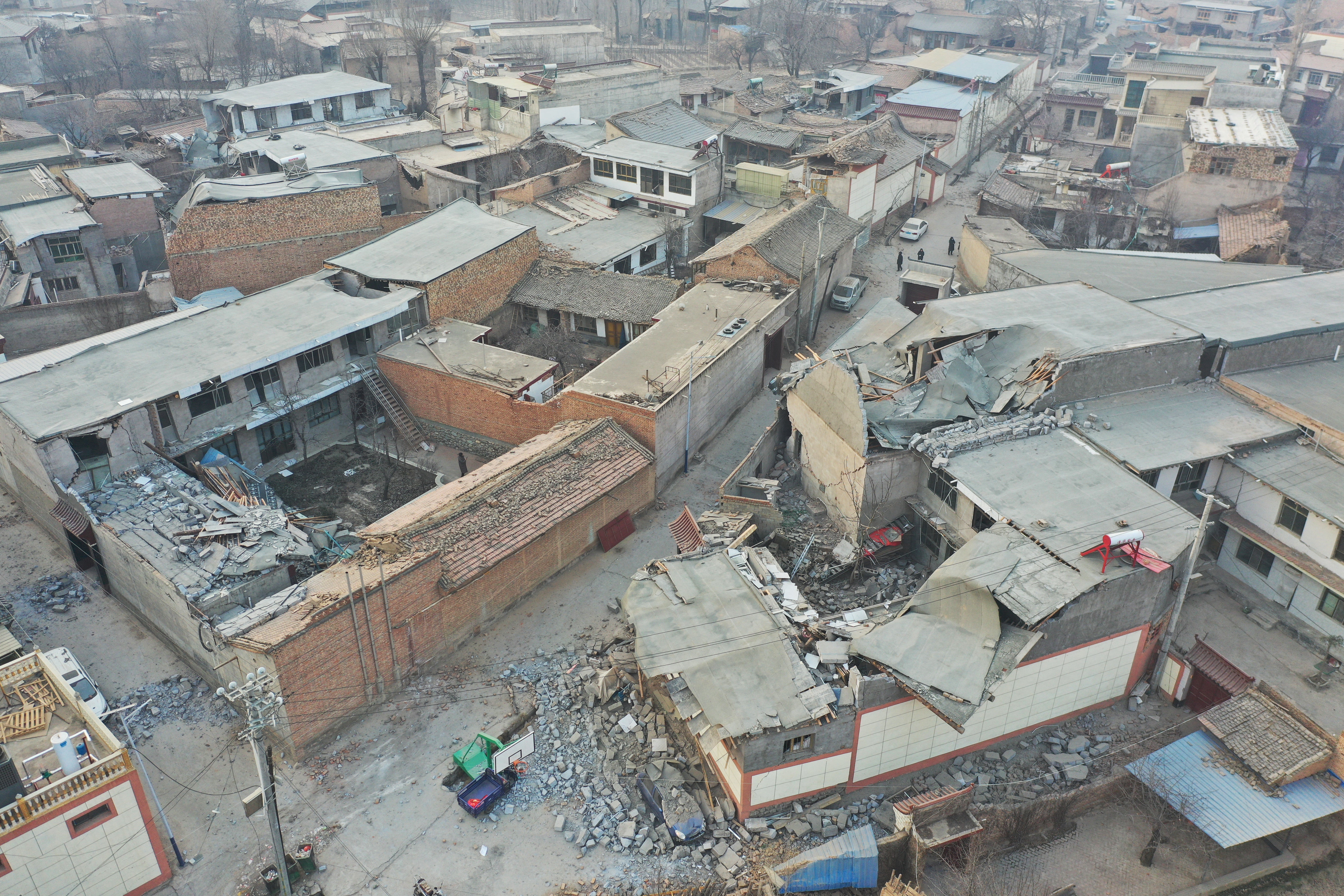
“I live on the 16th floor and felt the tremors so strongly. The moment of the earthquake was feeling like being tossed up after surging waves… I woke my family up and we rushed down all 16 floors in one breath,” the Gansu resident said.
He said it was freezing cold at -12C when they stepped out and saw their panicked neighbours, some of whom had rushed outside without warm clothing.
Another resident: “I was at the epicentre of the earthquake, and my mother and I couldn’t run away. The house was shaking so much that I couldn’t even stand up, and things were falling down.”
He said when they finally managed to come out of the home it was freezing cold, but they were afraid to go back inside.
“It was very cold outside at more than ten degrees below zero. I didn’t go back all night and there were constant aftershocks,” he said. “Human beings are really insignificant in the face of natural disasters”.
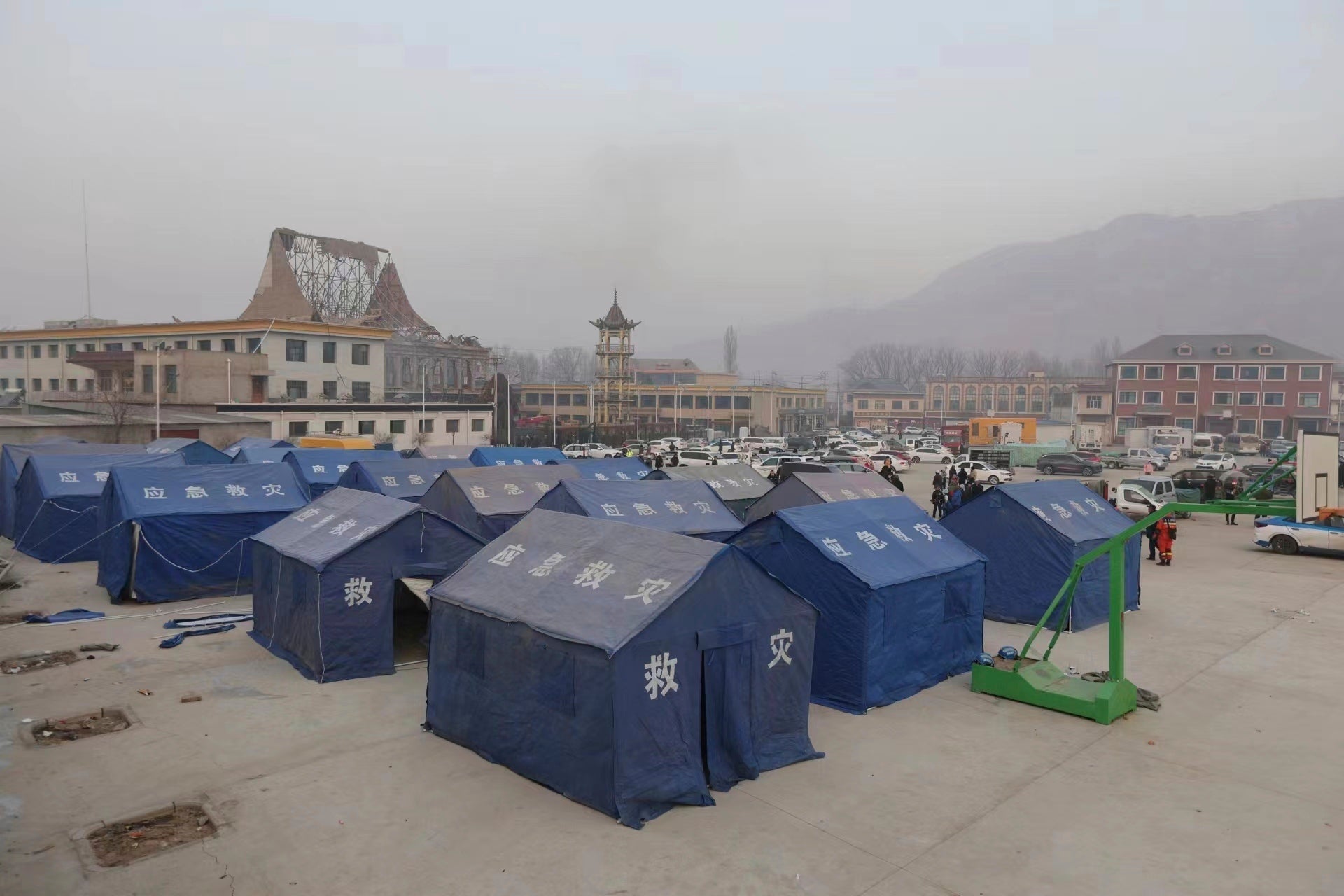
Icy weather conditions have exacerbated the challenges to rescue survivors and shortened the “golden window” to find quake people, Shi Wanjin, a captain of the Gansu Houtian Emergency Rescue Corps, said.
“The golden rescue time of this earthquake will be shortened,” Mr Shi was quoted as saying by China News network.
The province has been allocated 20m yuan ($2.8m) for emergency response work and sent supplies that included 2,600 cotton tents, 10,400 folding beds, 10,400 quilts, 10,400 cotton mattresses, and 1,000 sets of stoves.
Gansu is one of China’s poorest regions, bordering Mongolia between the Tibetan and Loess plateaus. It is currently witnessing freezing conditions, with overnight lows in the area recorded at minus -15C to -9C, according to the China Meteorological Administration.
The large scale of damage in Gansu has been attributed to the houses constructed with clay and mud, according to experts and local authorities. The houses are not constructed robustly enough to withstand earthquakes, and the severity of the damage was exacerbated by the fact that the quake struck late at night, likely making it more challenging for people to escape.
The earthquake was measured at 5.9 on the Richter scale by the United States Geological Survey, though the China Earthquake Administration said it was of 6.2 magnitude.
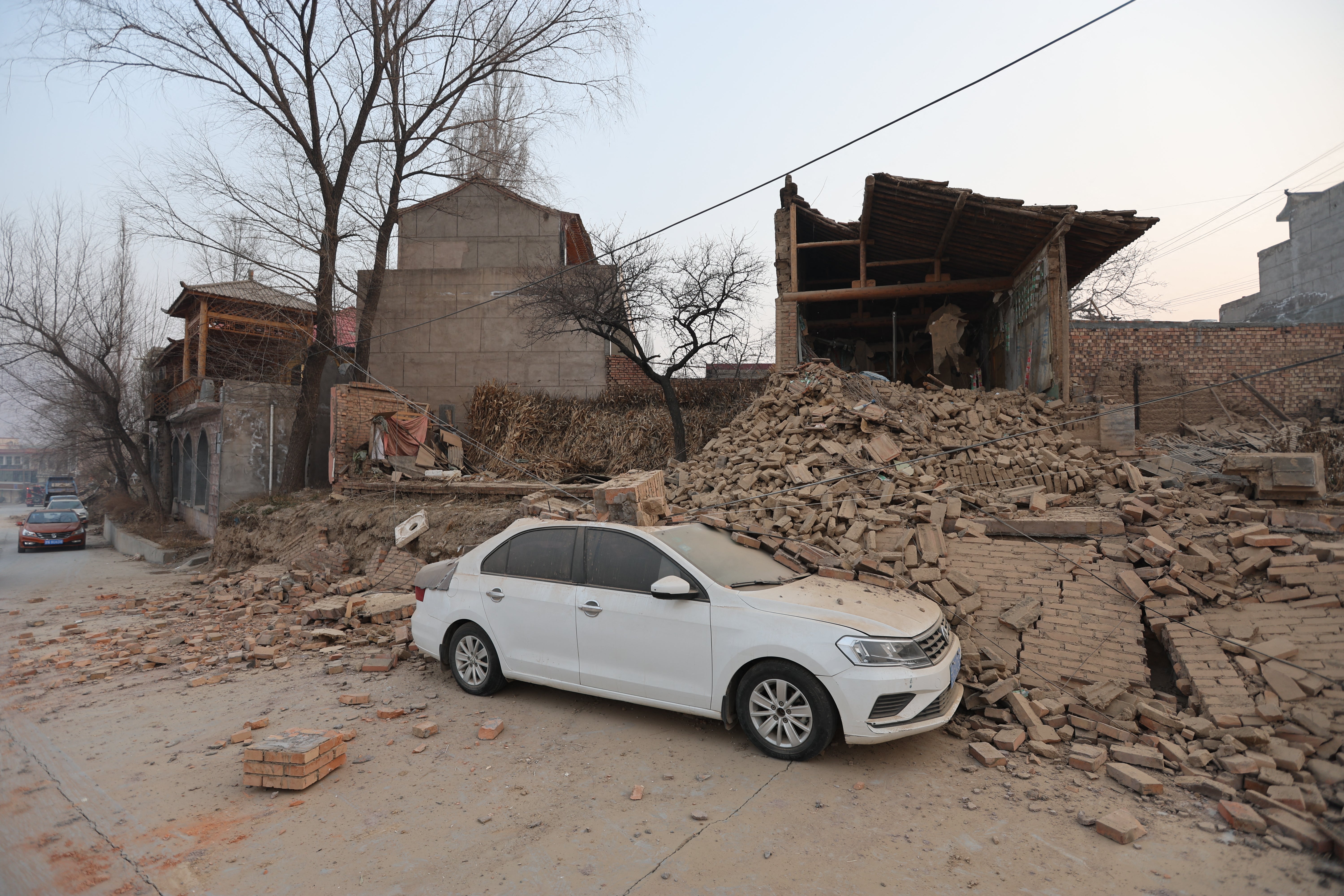
It is China’s deadliest since 2008 when a much more powerful 7.9-magnitude quake struck Sichuan, killing more than 90,000. It prompted a years-long struggle by authorities to rebuild the town with more resistant materials.
In September last year, at least 74 people were killed in a 6.8 magnitude earthquake southwestern province of Sichuan. It caused landslides and shaking buildings in the provincial capital of Chengdu, where 21 million residents were under a Covid-19 lockdown.

Join our commenting forum
Join thought-provoking conversations, follow other Independent readers and see their replies
Comments